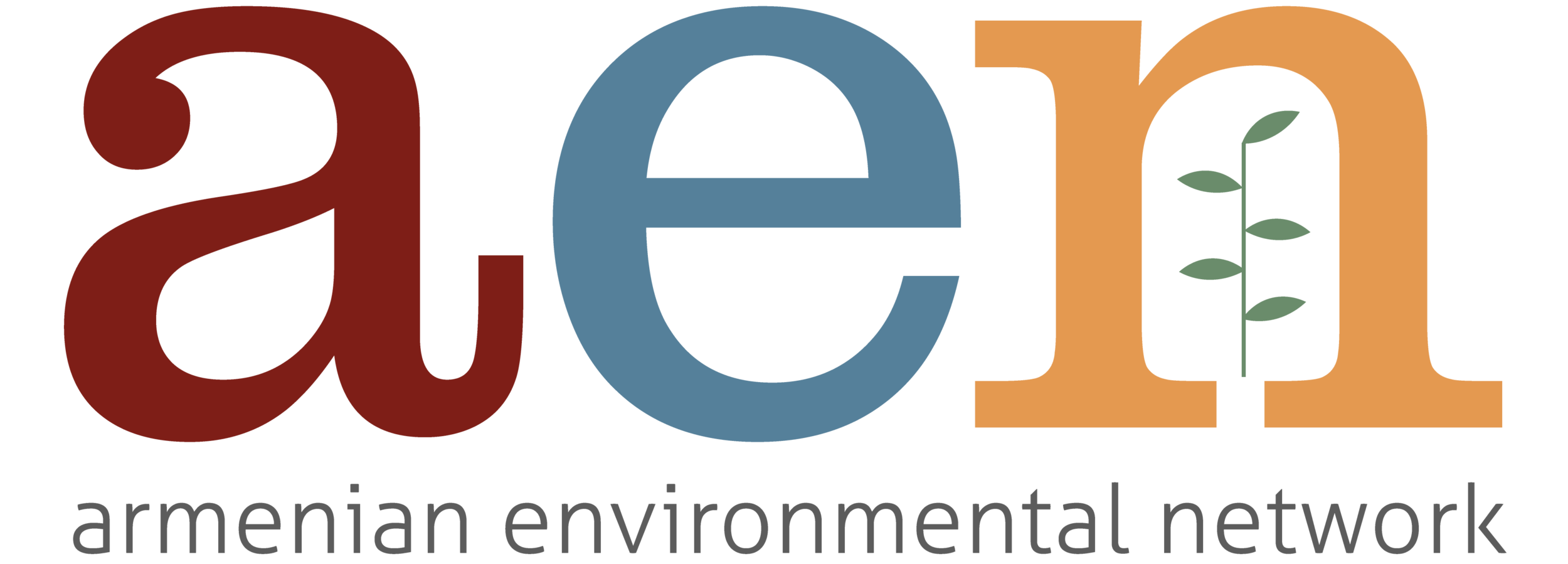AEN helped secure funding to support the following international exchanges:
Partner Organization: American University of Armenia (AUA) Center for Responsible Mining (CRM). Through research, training, and advocacy, AUA CRM promotes the creation and adoption of global best practices in socially, environmentally, and economically responsible mining of Armenia and the region. To archive this, AUA CRM engages with all key stakeholders including industry, civil society, environmental advocacy groups, financial institutions, and the public sector.
Project Description: AEN secured funding to support the international exchange of mining experts for a series of meetings and seminars. AEN worked with AUA CRM to 1) bring key members of the Armenian civil society together to define the problems of environmental degradation and threats to public health from the mining sector, 2) increase capacity and awareness of Armenians to improve mining activities in Armenia and 3) fostered partnerships with the AUA and mining experts in Armenia and international mining experts.
The following exchanges were organized in 2015 and 2016:
1) Three mining experts from Armenia attended a highly informative conference in Ulaanbaatar, Mongolia on mitigation of environmental impacts of mining. The conference was organized by the Mongolian Environmental Civil Council. Attending the conference from Armenia were Levon Galstyan (Pan-Armenian Environmental Front), Erik Grigoryan (Association of Environmental Lawyers and Economists), and Alen Amirkhanian (AUA Center for Responsible Mining). The aim of the visit was to learn from the Mongolian experience in advancing responsible mining and networking with environmental NGOs, a network that may prove useful as Armenia develops its path toward responsible mining.
2) Mr. Matthew Genasci, an international expert on mining fiscal regimes and the founder of the Mining Policy Group based in New York City, visited Armenia to conduct workshops and meetings with all key stakeholders in Armenia to get a clearer understanding of Armenia’s fiscal regime on mining and to discuss the draft version of his report, “Analysis of Armenia’s Mining Fiscal Regime”. The visit enabled Mr. Genasci to gather the necessary information to conduct a review and benchmarking analyses demonstrating how Armenia’s fiscal regimes measures up against global standards. Mr. Genasci met with government representatives to discuss his findings and highlight potential reforms, representatives from international organizations to gather data and information regarding Armenia’s mining tax laws and members of civil society to assist them in understanding the strengths and weaknesses in Armenia’s current mining fiscal regime.
3) Jonathan Fulcher, a mining expert with the Sustainable Minerals Institute at the University of Queensland, traveled to Armenia to assess Armenia's mining laws with respect to environmental and social protections. During his visit he conducted various consultative meetings and roundtable discussions with government officials, CSOs (civil society organizations), international organizations and academia. Mr. Fulcher noted that although the framework of laws with regard to the mining sector was reasonable, detailed policies and procedures for companies on how to engage are required. According to Mr. Fulcher, an important thing to understand is that environmental licenses should not be licenses to pollute. He also highlighted the idea of corporate accountability citing Australian legislation, which, for instance, fines the members of the corporate group if a polluting member of the group becomes insolvent.
Video recording of the round-table discussion
World Bank report on Strategic Mineral Sector Sustainability Assessment
Contact AUA's Center for Responsible Mining for more information about this project.
